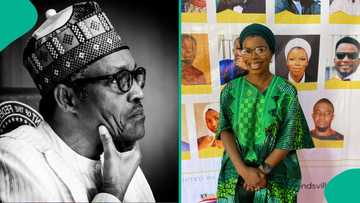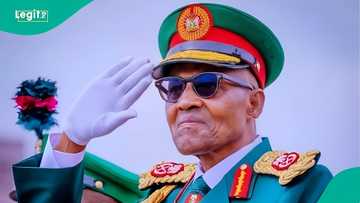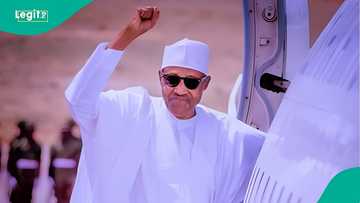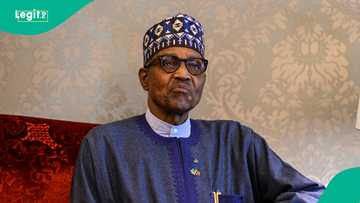Muhammadu Buhari’s Passage by Father Anthony Akinwale
Editor's note: In this piece, Father Anthony Akinwale looks beyond Buhari’s life and death to Nigeria’s deeper troubles. He shares how years of choices by soldiers and civilians have shaped a nation still searching for steady ground.
While some see him as a hero, and others a villain, the death of General Muhammadu Buhari is neither an occasion to demonise nor an occasion to canonise him. This is no time to think of Buhari. This is the time to think of Nigeria. Nigeria is bigger than her leaders.
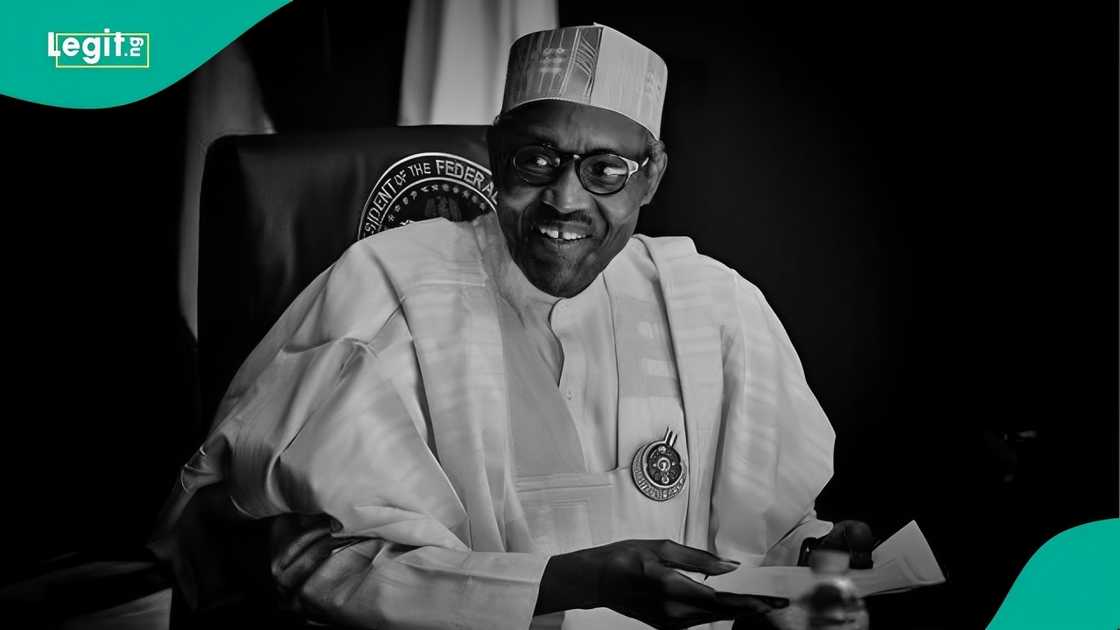
Source: Twitter
Given the poor quality of life of the average Nigerian, despite Nigeria’s enormous wealth, rare and unique is this opportunity, urgent and compelling the need to take a critical look at Nigeria, to reflect on how Nigeria has been and is still being governed or misgoverned by past military dictators, and by past and present civilian rulers. To be avoided, therefore, is the temptation of allowing ourselves to be taken up by pro and anti-Buhari rhetoric that will lead to a missed opportunity.
Buhari was a major beneficiary of military intervention in Nigeria. He was a member of a regional faction in the Nigerian Army, precisely of the class of July 29, 1966. That class staged a bloody military mutiny that targeted real and perceived members of the class of January 15, 1966, the class that terminated the First Republic in a bloody coup.
It was a time when young military officers in their prime, members of the two regionalised factions in the Nigerian military, exhibiting tragically poor judgement, plunged Nigeria into two totally avoidable and morally reprehensible ethnic cleansing coups culminating in the Nigeria-Biafra War.
On each other and civilian leaders, they turned their guns, having witnessed undeniable misconduct of the first generation of post-independence civilian leaders, leaders whose misdeeds led Nigeria to drift on the treacherous ocean of disregard for democratic principles. Unable and or unwilling to unite Nigeria after the departure of British colonialists, almost all the actors in the First Republic skilfully manipulated Nigeria’s ethnic, regional and religious diversity. They thus pushed Nigeria into a slippery slope that led her to war.
With the benefit of hindsight, one can assert that the famous post-war declaration of General Yakubu Gowon, “No victor no vanquished”, was less than exact in its depiction of the outcome of the war. That declaration ought to have been “No victor all vanquished”. For both sides lost the war.
The war was lost when the first shot was fired. We thought the wound was healed on October 1, 1979, when soldiers returned to the barracks. We thought lessons had been learnt by soldiers and by civilians. We thought civilians would be of good behaviour, and soldiers would avoid the recurrent and repeated lawlessness of staging coups. But we were wrong.
The military returned four years later under the leadership of General Buhari. And if the first bout of military rule led us to war, the second did not lead us to peace. It was, like the first, marked with intimidation, with gratuitous brutality dressed in the robes of a war against indiscipline, by those who, having seized the reins of state at gunpoint, demonstrated their lack of discipline.
Military rule was marked by delegitimisation of divergent opinions, arbitrary arrests of dissenting voices, and detention without proper trial. There was tyranny in the land, and there were coups and countercoups whose outcome showed a predilection for the philosophy of might is right. Whoever held military might was successful in staging a coup.
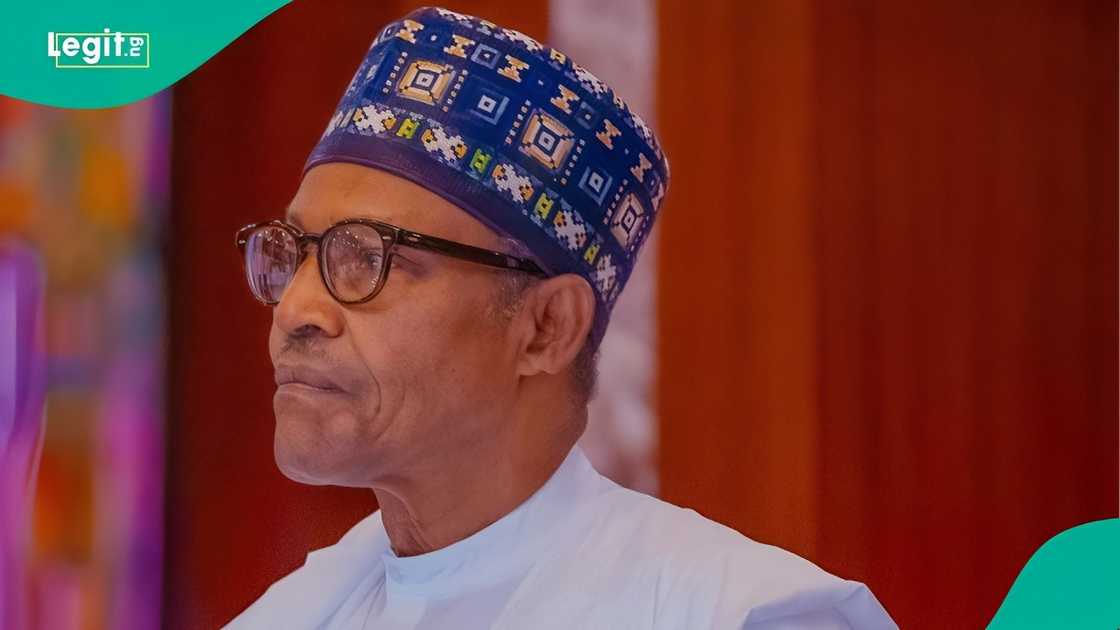
Source: Twitter
Whoever lacked superior military might had his coup aborted. Sentenced to death by tribunals that met in secret, he would be subjected to the cruel and barbaric indignity of being tied to the stakes, his body torn to pieces with bullets, sl@ughtered like a ram on execution grounds. Then there were promises of return to democratic rule, and those promises were almost always kept in the breach.
The Nigerian psyche has been largely infected with military rule and its attendant rule of the arbitrary. General Aguiyi-Ironsi abolished federalism by military fiat despite the ethnic diversity of Nigeria. That was used as one of the reasons behind the mutiny of July 29, 1966. Yet, the mutinous soldiers of July 29 left Nigeria with a “federal” constitution that effectively abolished federalism in 1979 and 1999. Buhari came back to rule Nigeria in 2015, thirty years after his military government was overthrown in a palace coup, using that same constitution with its numerous inconsistencies and contradictions.
Muhammadu Buhari’s body and verbal language before and after the 2015 election did not convince those who saw him as a military tyrant that he had become a “born again” democrat. And this clan of sceptics is big. So also is the clan of Buhari’s supporters. However, instead of seeing this as an occasion to play God by demonising or canonising him, the passage of Muhammadu Buhari offers us a unique opportunity to wake up to the fact that we have been living in prolonged absence of democracy. Nigerians should allow the General from Daura to rest in peace.
Nigeria has always been governed as if members of her ruling elite—civilians and military—are landlords who own the country while the rest of us are tenants who owe our landlords. Our beloved country has, for so long, been in the hands of the mighty who presume they are right, either because they seize the reins of state through the barrel of the gun or a fatally flawed electoral process. We, on our part, either resort to hero worship or villain lynching.
In the absence of consultation and accountability by those who lead us, we are repeatedly deprived of the rule of just laws. Imposed on us, instead, is the rule of draconian and arbitrary laws. That is why Buhari’s transition must be, for each and all, an occasion to firmly resolve to work so that our country Nigeria may pass over from rule of nepotism to rule of merit, from rule of ethnic and religious bigotry to rule of well-managed diversity, from a land where brutality is mistaken for discipline to a land where discipline is regulated by wisdom.
Father Anthony Akinwale, OP, is a Professor of Systematic Theology and Thomistic Philosophy in the Department of Philosophy and Religious Studies at Augustine University, Ilara-Epe, Lagos State.
Disclaimer: The views and opinions expressed here are those of the author and do not necessarily reflect the official policy or position of Legit.ng.
Proofreading by James Ojo, copy editor at Legit.ng.
Source: Legit.ng

